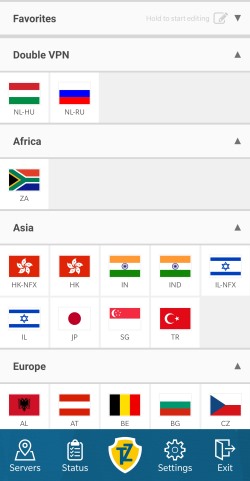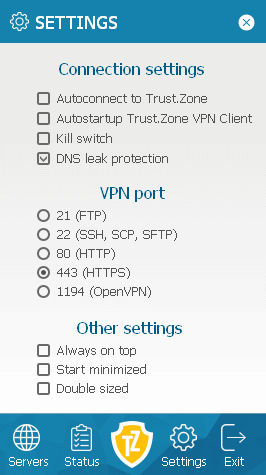A bucket load of websites, online services, and some government organizations use VPN blocking to ensure that users don't access restricted content. Restrictions could come in the form of: content restrictions, region specific restrictions, censorships and etc. Luckily, the right VPN service like Trust.Zone can help ISPs avoid VPN blocking coupled with a little expertise.
Let’s take a look at different types of VPN blocking and how to get around VPN block.

ISPs and websites can block VPNs in different ways, but the three most popular methods you need to know are:
A VPN works by hiding their users' IP addresses and assigning their server's IP address to users. So, when users surf the web, the IP address they use is from the VPNs server. This works in getting around geo-restrictions most websites have up. However, because VPNs assign IP addresses to users, websites can easily keep a log of VPN IP addresses and block them specifically from accessing their site.
This is another way sites block VPNs. Most VPNs use specific ports while connecting to the internet. Think of the ports as tunnels that internet traffic passes. Because these ports are specific to VPNs, websites can easily block any traffic passing through these ports.
Deep packet inspections are the most advanced way websites block VPN traffic. This method doesn't check where traffic is coming from, but instead, they check the kind of traffic.It makes use of very advanced methods to block security protocols and encryptions common to VPN platforms.
Although VPN blocks can be a hassle, getting past them is possible. Before we get into some of the best ways to avoid VPN blocking, make sure you are using a high-quality VPN. Next, try any of these processes;
 When you are thinking of how to bypass VPN block, start with the simplest solution. Server switching is as simple as changing to another server in the same country. Most times, VPNs have an extensive server network that users have access to. So, if you find that your VPN server is blocked, simply disconnect from it and reconnect to a different server on the same VPN services.
When you are thinking of how to bypass VPN block, start with the simplest solution. Server switching is as simple as changing to another server in the same country. Most times, VPNs have an extensive server network that users have access to. So, if you find that your VPN server is blocked, simply disconnect from it and reconnect to a different server on the same VPN services.
When choosing a VPN services, make sure you pick one that:
Because VPNs have a plethora of users, their users often have to share IP addresses. So, when users connect to a server, the VPN services will allocate the same IP address to every single user on that server. This is why websites can detect VPN specific IP addresses easily.
By paying for a dedicated IP address from your VPN services, you don't have to share your IP address with other users. So, websites are less likely to detect your IP address as a VPNs' when you access websites with this IP address. You can also use Double VPN or combination of Double VPN + Dedicated IP to avoid IP blocking
One thing most people don't know is that most restrictions websites have are limited to WiFi connectivity. So, if you are trying to figure out how to get around VPN block, disconnect from your WiFi and connect to your mobile data.
We mentioned port blocking as a way websites and ISPs can block VPNs. To counteract this, switch ports. You can do this automatically or vertically. If you want to do this automatically, go for VPNs that help users switch ports. They automatically scan ports for users when they connect, ensuring they avoid blocks. But, if you want to do it yourself, here are some of the best ports you can switch to:
Trust.Zone supports switch between ports: 443, 80, 21, 22 and 1194
Lastly, to avoid VPN blocks, you can change your security protocol. VPNs have a plethora of security protocols that users can choose from. The most modern one being OpenVPN. This protocol comes with speed and is extremely secure.However, most VPNs use OpenVPN: this makes it easy for websites to detect and block.
So, avoid VPN blocks by switching to other protocols not commonly associated with VPNs. Some tips for picking security protocols for VPN are:
Trust.Zone supports several protocols: L2TP/IPSec, OpenVPN, IKev2 and a proprietary protocol for many OS and devices - Windows, iOS, Android and other.
VPNs are not only for security: they are also for connectivity. They help connect different people worldwide on the internet, to places where they usually wouldn't have been able to connect to. This is why, with this article, we provided answers to the question of how to bypass VPN block. Use any of these methods to bypass VPN blocking if you experience any VPN blocks.
Author BIO
John Edwards is a writing specialist who works at The Pick The Writer. He is looking for ways of self-development in the field of writing and blogging. New horizons in his beloved business always attract with their varieties of opportunities. Therefore, it is so important for him to do the writing.